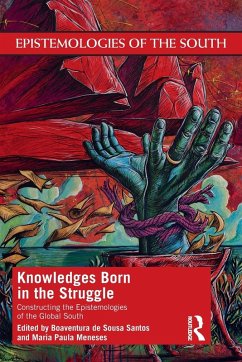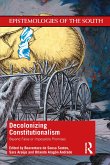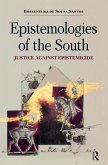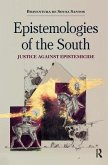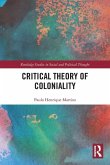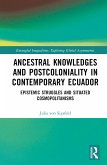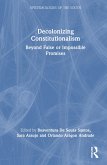In a world overwhelmingly unjust and seemingly deprived of alternatives, this book claims that the alternatives can be found among us. These alternatives are, however, discredited or made invisible by the dominant ways of knowing. Rather than alternatives, therefore, we need an alternative way of thinking of alternatives. Such an alternative way of thinking lies in the knowledges born in the struggles against capitalism, colonialism, and patriarchy, the three main forms of modern domination. In their immense diversity, such ways of knowing constitute the Global South as an epistemic subject. The epistemologies of the South are guided by the idea that another world is possible and urgently needed; they emerge both in the geographical north and in the geographical south whenever collectives of people fight against modern domination. Learning from and with the epistemic South suggests that the alternative to a general theory is the promotion of an ecology of knowledges based on intercultural and interpolitical translation.
"In this exciting collection, the epistemological-rather than the geographical-South emerges in its full political vitality. [...] The authors illustrate the immense cognitive diversity generated through resistance against exclusion, degradation, and nullification-offering models of how we can weave together counter-hegemonic processes of existential and epistemological restitution. They thereby enact the idea of the Global South as both a reality and a 'proposal-in-progress'. This is an invitation to join the necessarily collective, positive, and constructive endeavor of interpreting a diverse and non-relativistic, incomplete, and pluriversal world through fighting to transform it. Don't pass it up!"
Jane Anna Gordon, author of Creolizing Political Theory and Statelessness and Contemporary Enslavement
"This sparkling collection offers a compelling instance of decolonization as ongoing emancipatory practice. Its authors urge us to reboot the modern political imagination by learning with, and from, the South: the South less as geographical than as epistemic space. And as the source of alternative theorizations born of struggle, resistant re-cognition, subaltern cosmopolitanism. The South, in this sense, is both a reality and a 'proposal-in-progress', speaking to emergent political possibilities, plural histories, and hopeful futures."
Jean and John Comaroff, Harvard University
Jane Anna Gordon, author of Creolizing Political Theory and Statelessness and Contemporary Enslavement
"This sparkling collection offers a compelling instance of decolonization as ongoing emancipatory practice. Its authors urge us to reboot the modern political imagination by learning with, and from, the South: the South less as geographical than as epistemic space. And as the source of alternative theorizations born of struggle, resistant re-cognition, subaltern cosmopolitanism. The South, in this sense, is both a reality and a 'proposal-in-progress', speaking to emergent political possibilities, plural histories, and hopeful futures."
Jean and John Comaroff, Harvard University

